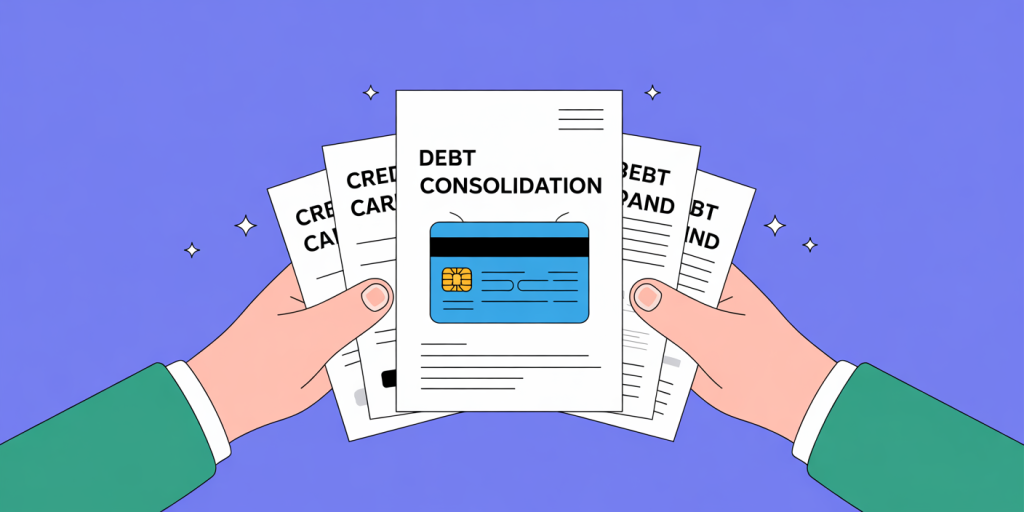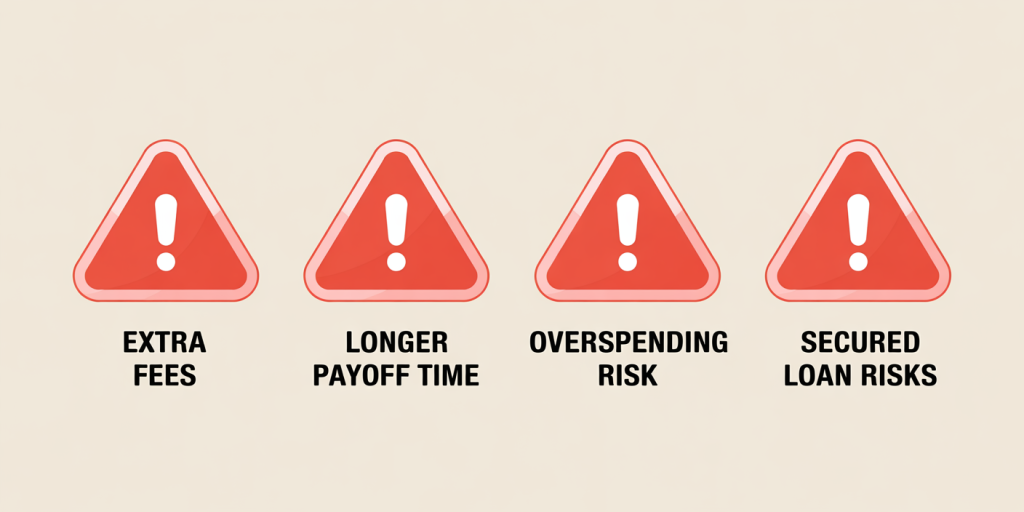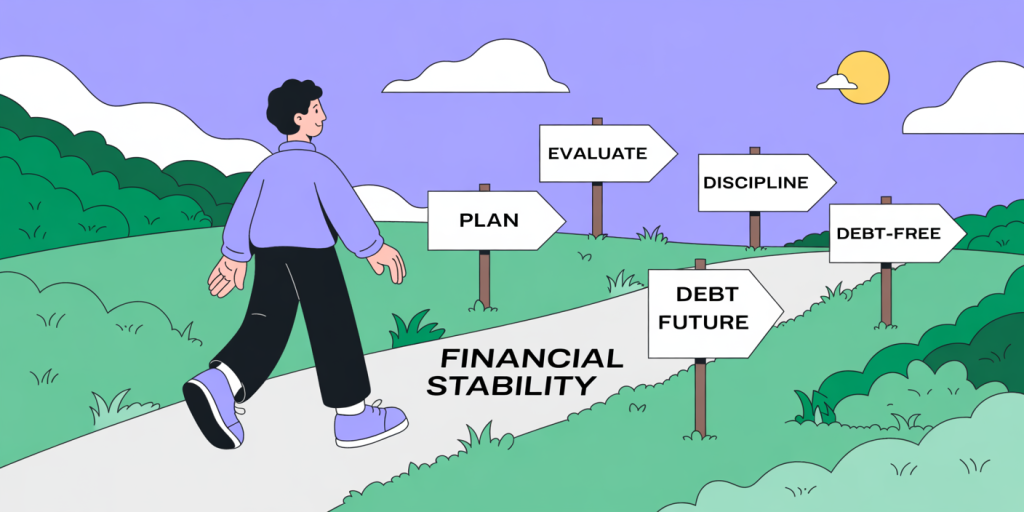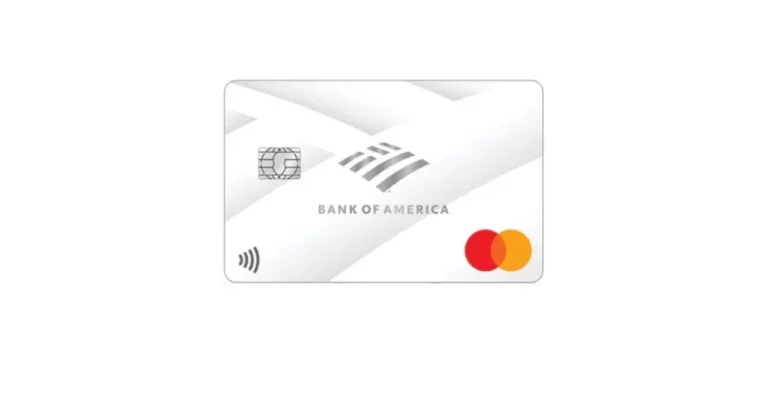Debt Consolidation: A Complete Guide to Its Pros and Cons
Anúncios
Debt Consolidation: A Comprehensive Guide to Streamlining Your Repayment
Debt consolidation has become a widely used and often recommended financial strategy—especially for individuals juggling multiple payments to different creditors. It offers a way to combine several debts into a single loan or monthly payment, often at a lower interest rate, making repayment more straightforward and potentially less expensive over time.
However, like any financial tool, debt consolidation comes with both advantages and limitations. It’s not a one-size-fits-all solution and may not be appropriate in every financial situation. Understanding how it works and carefully weighing the pros and cons will help you decide whether it’s the right step toward financial stability.
What Is Debt Consolidation?

Anúncios
At its core, debt consolidation is the process of combining multiple existing debts—typically high-interest debts—into one new loan or credit product. This new loan is then used to pay off the original balances, leaving the borrower with just one monthly payment to manage.
The primary goal is to obtain better terms—most commonly a lower interest rate, a more manageable payment schedule, or both.
Anúncios
Common Types of Debts Consolidated:
-
Credit card balances
-
Personal loans
-
Medical bills
-
Department store or retail credit cards
-
Unsecured lines of credit
-
Private student loans (sometimes)
How Is It Done?
Debt consolidation can be accomplished through various methods, including:
-
A personal loan: You borrow a lump sum from a bank, credit union, or online lender and use it to pay off all your other debts.
-
A balance transfer credit card: You transfer multiple credit card balances onto a single card—ideally one with a 0% introductory APR.
-
A debt consolidation program: Offered by nonprofit credit counseling agencies, these programs negotiate lower interest rates with your creditors and manage your payments through one coordinated plan.
Once your debts are consolidated, you’re left with a single obligation—which can make managing your finances simpler and more predictable.
Benefits of Debt Consolidation
There are several potential advantages to consolidating your debts. These benefits are most evident when the consolidation strategy is well-matched to your financial situation and handled responsibly.
1. Streamlined Payments
One of the most immediate and noticeable benefits is the simplicity of managing just one monthly payment rather than keeping up with multiple bills from different lenders. You no longer have to track several due dates, minimum payments, and interest rates.
This streamlined approach can help you:
-
Reduce the risk of missed payments
-
Avoid late fees
-
Stay organized and consistent with your budget
2. Lower Interest Rates
Many people pursue debt consolidation specifically to reduce the overall interest they pay—especially if they’re carrying high-interest credit card debt. By qualifying for a lower-rate personal loan or balance transfer card, you may be able to save hundreds or even thousands of dollars over time.
💡 Example:
If you have $10,000 in credit card debt at 20% APR and consolidate it into a 7% personal loan, the savings over the life of the loan could be significant—even with fees factored in.
3. Reduced Monthly Payments
Consolidation loans often come with longer repayment terms, which can result in lower monthly payments. This is particularly helpful if your budget is stretched thin.
It’s worth noting that although your payments are lower, you may pay more interest over time due to the extended repayment period. Still, the short-term relief it provides can be crucial for regaining financial control.
4. Potential Credit Score Improvement
When handled wisely, debt consolidation may actually boost your credit score over time. Here’s how:
-
Paying off multiple accounts can lower your credit utilization ratio, which is a key factor in your score.
-
Making on-time payments on the new loan builds a positive payment history.
-
Closing out high-interest accounts can reduce the temptation to accumulate more debt.
That said, consolidation alone won’t fix poor credit—but it can be an important step in improving it when paired with responsible financial behavior.
Downsides of Debt Consolidation

While the benefits are appealing, it’s important to recognize the potential drawbacks and hidden risks of consolidating debt. Failing to consider the full picture could lead to new financial problems down the line.
1. Additional Fees and Costs
Although a consolidated loan might offer a lower interest rate, it’s not always “cheaper” in the long run. Many debt consolidation products include:
-
Origination fees (often 1% to 8% of the loan amount)
-
Balance transfer fees (commonly 3% to 5%)
-
Late payment penalties
-
Annual fees (for certain cards or loans)
These fees can erode the savings you were expecting, so it’s important to read the fine print and do the math before committing.
2. Longer Payoff Timeline
While a longer loan term can reduce your monthly payments, it also means you’ll be in debt longer. Over time, you might end up paying more in total interest, even with a lower rate.
📌 Tip: Try to pay more than the minimum each month to shorten the repayment period and reduce total interest paid.
3. Not a Cure for Overspending
Debt consolidation can treat the symptom (multiple debts), but not the cause—which is often overspending or poor money management. If your spending habits remain unchanged after consolidation, it’s easy to:
-
Rack up new credit card debt
-
Rely on personal loans again in the future
-
End up in an even worse financial position
For consolidation to be effective long term, it must be paired with behavioral change and better budgeting practices.
4. Risks When Secured Debt Is Involved
Some people consolidate unsecured debts (like credit cards or medical bills) using secured loans, such as a home equity loan or home equity line of credit (HELOC).
While these often come with lower interest rates, they put your home at risk if you’re unable to repay. Defaulting on secured debt can lead to foreclosure or repossession—so it’s critical to understand the stakes before choosing this path.
Is Debt Consolidation Right for You?
Debt consolidation is a powerful tool—but only when used under the right circumstances and with a clear strategy.
✔️ Debt Consolidation May Be Right If:
-
You’re juggling multiple high-interest debts
-
You have a good or improving credit score
-
You’re ready to make behavioral changes to avoid future debt
-
You have a stable income and can commit to a fixed repayment plan
❌ Debt Consolidation May Not Be Ideal If:
-
You have bad credit and only qualify for high-interest consolidation loans
-
You’re consolidating debt without addressing the root problem (spending habits)
-
You’ll struggle to keep up with the new loan payments
-
You’re being charged excessive fees that offset the interest savings
Before committing to any loan or credit product, carefully review:
-
The APR (not just the advertised rate)
-
The loan length and monthly payments
-
Any fees or penalties
-
The total amount you’ll repay over time
Final Thoughts

Debt consolidation can provide relief from financial stress, simplify your repayment strategy, and even save you money. But it’s not a silver bullet. To make it work, you need to understand the terms, weigh the risks, and approach it with discipline.
At its best, consolidation serves as a bridge toward financial stability—giving you the space to refocus, reorganize, and rebuild. At its worst, it becomes another layer of debt in a cycle of poor financial habits.
Remember:
-
Evaluate your entire financial picture before deciding.
-
Choose the consolidation method that aligns with your goals and credit profile.
-
Avoid taking on new debt while paying off the consolidated balance.
-
Focus on creating a long-term budget and savings plan to prevent future debt problems.
Used wisely, debt consolidation can be a step forward—but only if it’s part of a bigger plan to regain and sustain financial health.

Post Comment